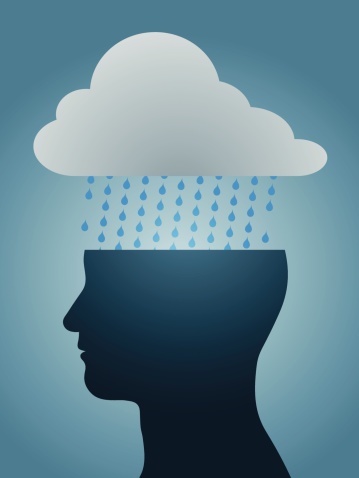
Depression is a common situation dealt with on a daily basis. Most patients that Nurses find themselves coming in contact with have some form of illness or injury. This makes depression among patients common. Knowing how to spot it and how to react to depressed patients can help you handle the situation properly and deal with it with minimal stress.
What is Depression
Depression is a common disorder that affects many people every day. It affects all age groups, males and females, although females are more likely to suffer from it than males. Stress contributes to depression, making this illness more common in the last few years. The amount of stress an individual handles on a daily basis is on the rise and can contribute to depression.
What Contributes to Depression
There are a number of factors that contribute to depression. Stress is a huge factor. Debt, work and family can weigh heavily on the amount of stress someone experiences today. Age also plays a major role in depression and sickness in the elderly can increase the chances of them suffering from depression. This is a main factor as to why Nurses experience depressed elderly patients the most. Some elderly patients are forced to relocate to a new residence, while others become ill and are unable to live the life they are accustomed to. Some can feel abandoned by their loved ones and find themselves feeling alone. Leaving people without a strong social support network increases the chances of developing depression.
Signs of Depression
There are many warning signs of depression, although some may not be so easy to spot. A feeling of hopelessness or helplessness can lead to depression. Nurses often see this in elderly patients who don't have a lot of family support. A loss of interest in daily activities is another sign of depression. These signs can become apparent when patients are no longer able to get around on their own. Loss of mobility can make a patient no longer want to engage in activities for fear of embarrassment.
 Changes in sleep patterns or appetite are another sign of depression. Nurses have to watch this sign as well, because certain medications can interfere with sleep and appetites of patients. Frequent physical complaints or ailments, anger or rage toward others and feelings of anxiety are other signs of depression. Many of these symptoms Nurses experience in their patients frequently. The key is determining when they start happening and ruling out any other possible causes. When there are no other possible causes, depression could be the reason.
Changes in sleep patterns or appetite are another sign of depression. Nurses have to watch this sign as well, because certain medications can interfere with sleep and appetites of patients. Frequent physical complaints or ailments, anger or rage toward others and feelings of anxiety are other signs of depression. Many of these symptoms Nurses experience in their patients frequently. The key is determining when they start happening and ruling out any other possible causes. When there are no other possible causes, depression could be the reason.
How Can Nurses Help or Prevent Depression
Nurses play a vital role in their patient's lives, no matter the age of the patient. There are certain things that Nurses can do to help prevent depression altogether. Encouraging outdoor activities, even when your patient doesn't feel like doing them, is an excellent way to combat depression. A healthy diet and a regular eating schedule helps to recognize any changes in eating patterns. New hobbies help patients realize fun activities they can engage in to be entertained, even though they may not be able to do everything they could once do.
How Nurses Play an Important Role in Depressed Patients
Nurses are the people that patients see the most throughout the day, so it only makes sense that they play an important role dealing with depressed patients. Many things Nurses do can help a depressed patient not feel so worthless, and sometimes even lift their spirits. Talking to patients about their feelings is a good first step in dealing with their depression. Being sympathetic helps them know that you understand their feelings rather than judge them for how they feel.
Be careful about any advice you offer and always refer them to their doctor for specific medical advice. Accept their feelings toward the rest of the world. Trying to reason with them may make it seem like you are just another person who is against them or doesn't care about them. Reassure them of depression treatments and how effective they are. Let them know that treatment has high success rates, and they can work with their doctor to find the best treatment options.
It is common for Nurses to deal with depressed patients on a regular basis. Despite this, it is still important to remember to treat them as if they are all individual cases, and never group them together. A little reassurance could make all the difference in a depressed patient's outlook. The caring compassionate attitude that Nurses are known for could be exactly what a depressed patient needs.
If you enjoy our blog posts, try signing up for our enewsletter below!







